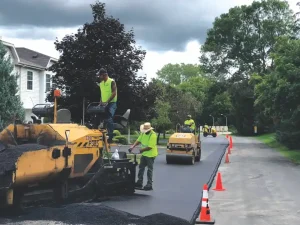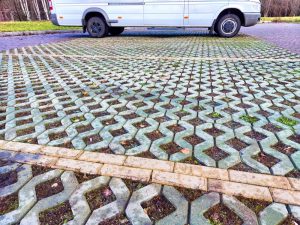Concrete is a common and versatile paving material that produces strong and durable driveways, parking lots, playgrounds, and other pavement types. It can also be customized with different colors, levels, and textures, making it an excellent option for home improvement.
A lot goes into installing a concrete pavement, from planning, preparation, and installation to aftercare. Doing it right will produce the desired outcome. However, poor construction and workmanship can result in costly failures.
Common Concrete Mistakes
Improper Planning
Successful concreting demands that you plan and get everything to ensure the project runs smoothly. Planning is the first and one of the essential phases in a concreting project. Any mistake here can adversely affect the subsequent phases and the entire project. For example, choosing the gravel, substandard cement, underestimating the amount of concrete needed, etc.
Insufficient Site Preparation
The success or failure of concreting depends on how well the site is prepared. If the site is not thoroughly compacted before pouring concrete, you risk having an uneven surface. Thin and small gravel can also result in an unprofessional outcome.
Incorrect Concrete Mix
An inappropriate proportion of water and cement can compromise the integrity of your concrete slab. The mix shouldn’t be too dry or too wet, as this may result in cracks, tears, and frustrations down the line. The cement-to-water ratio must be right. Also, note that different types of jobs call for different concrete mixes. So, you must also be informed of the nature of the job and its mixed requirements.
Failing to Factor in Bad Weather
Preparing for bad weather is something many forget to do. Bad weather, such as extreme cold or heat and sometimes rain, can ruin a project and impede the durability of your concrete pavement. The importance of factoring in weather conditions is to choose quality materials and adopt construction practices that are mindful of the conditions. So, take weather forecasts seriously when planning for concrete projects.
Poor Finishing
Some undermine the value of thorough textured finishes after pouring concrete. As a result, they get it wrong, leading to rough and uneven surfaces that eventually develop problems. You must not forget extensive finishing touches if you’re after quality and professional results. Also, timing is essential before the concrete dries and becomes unworkable.
Tampering with Concrete before it Cures
Concrete takes time to cure; roughly 48 hours. It can even go up to one week to fully set up. Removing the form, walking on it, painting the concrete, or placing furniture on it before it completely sets can undo all the hard work.
Bottom Line
Concrete is great as a paving solution. However, it can be complicated to work with. Completing the project with the right knowledge, materials, tools, and people is essential to getting it done right. Proper planning must also go into the concreting project to increase the chances of success and lessen the hassles of the work.
The safest option, however, is to work with experienced professionals such as Pro Pave Inc. We’re a premier commercial concrete and asphalt paving company with several decades of offering quality services to a diverse range of clients.
Contact us or call us at (703) 433-9500 for more information.





